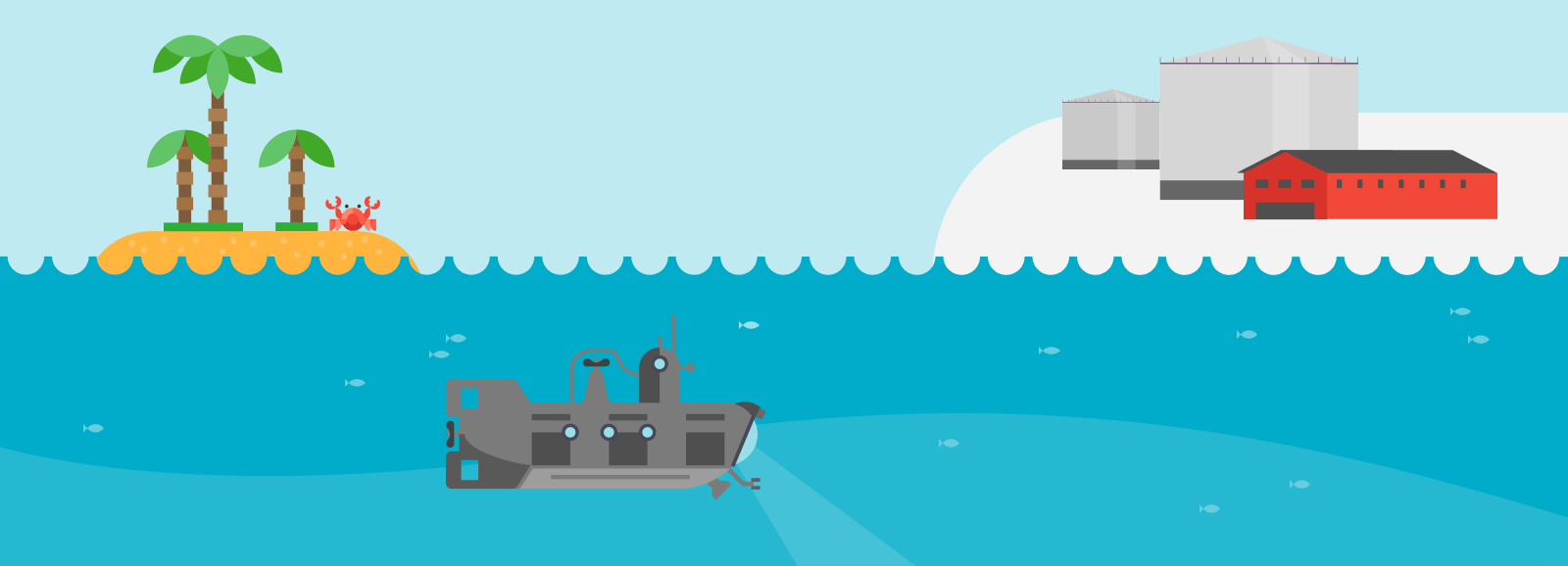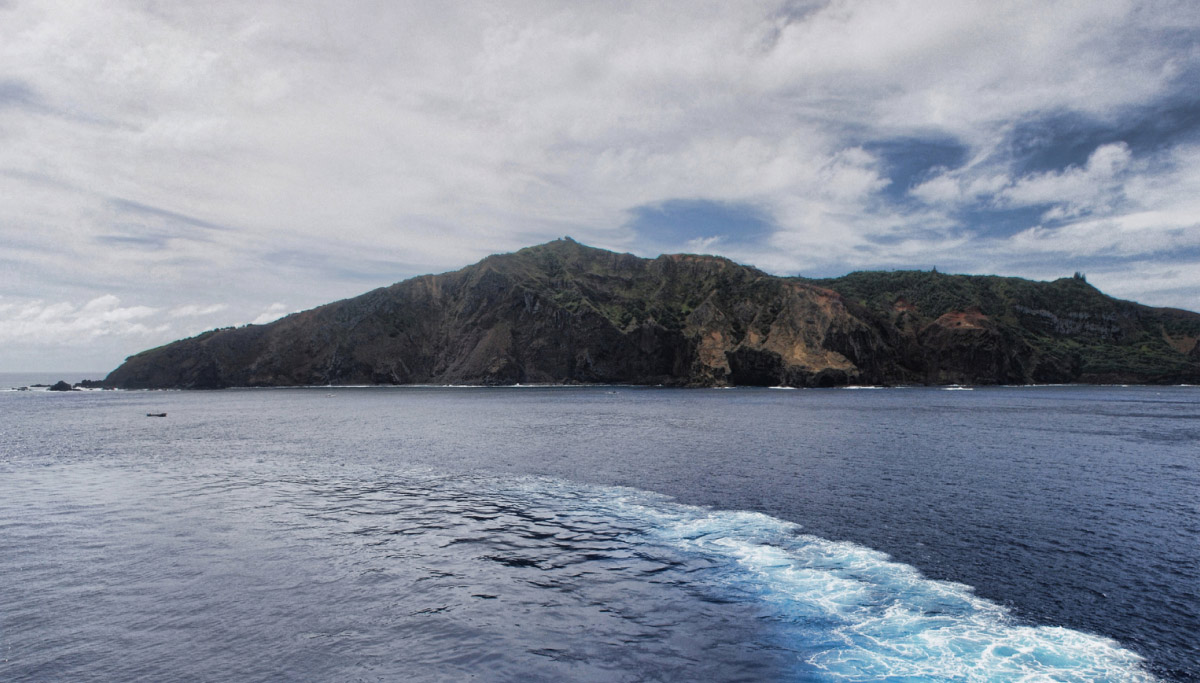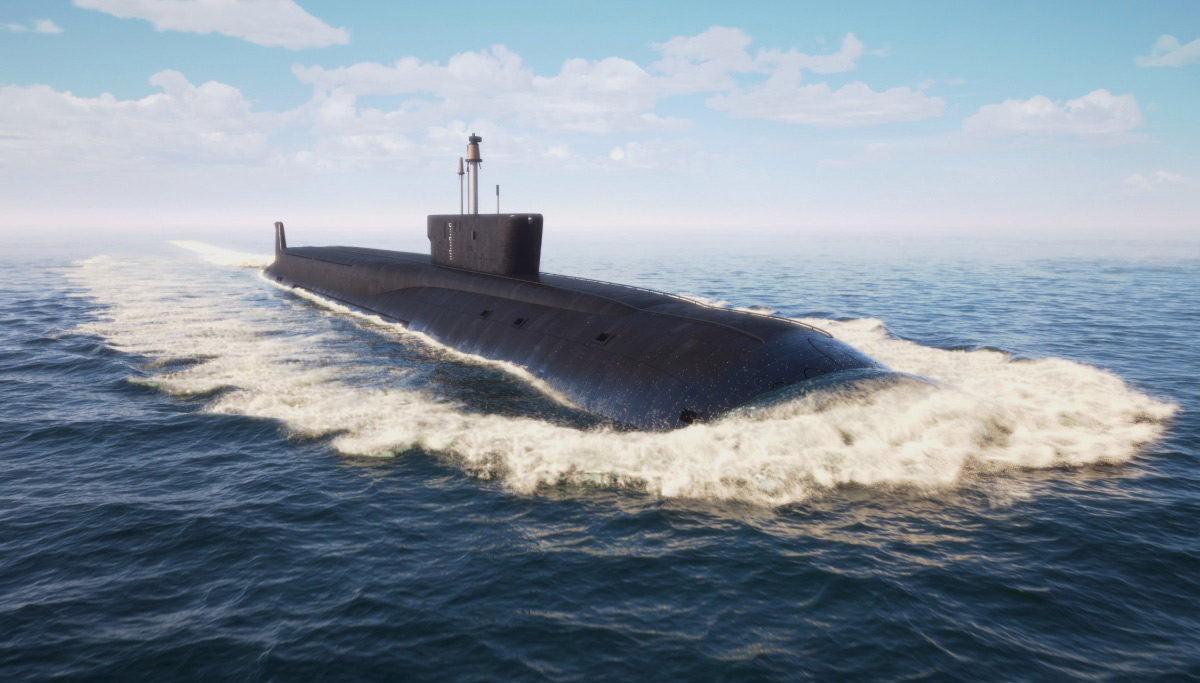Distant dentistry: oral care in remote places
Distant islands. Antarctic bases. Submarines in the abyss. As a child you may have imagined the lives of people who live in these unique places. But did you ever wonder what happened when those residents got a toothache while living in isolation? This is how the residents of three unique locations manage their oral care.
On the Pitcairn Islands
It’s nearly impossible to get an exact count of the number of islands in the world, but we do know that about 11,000 islands are inhabited with populations anywhere from tens of millions to just a few hundred. The most difficult to reach island in the world has less than 70 residents.
On some remote islands, like Tuvalu, there are dental clinics staffed by oral health therapists who are only permitted to perform simple fillings and cleanings. That’s not the case on the Pitcairn Islands.
The Pitcairn Islands is a small British Overseas Territory located in the Pacific Ocean and made up of four islands. The nearest airport is at Gambier Island about 330 miles away and there’s only one flight per week. To get from Gambier Island to the Pitcairn Islands, you’ll need to hop onto a boat for a 36-hour ride. Also, the boat only travels there four times a year.
The few local physicians do their best to address issues as they occur. Their medical center has a room set aside for dental needs and is equipped with a setup that looks very familiar to what you might see at your dentist. But for complex procedures like fillings and removals, islanders must either wait for a trained dentist to visit or travel off-island to receive care.
On an Antarctic base
McMurdo Station is the largest community in Antarctica, capable of supporting up to 1,260 residents during the busy summer months. The community is transient, meaning no one lives there year-round, but one of the many roles necessary to run the station is a dentist.
Most residents of McMurdo Station are only there for short stints and the dentist is no exception. Dentists generally stationed there for six to nine months and travel between McMurdo Station and smaller inland bases to provide care there.
There isn’t a dentist at McMurdo Station during the winter months. The physicians who stay during the off season have some basic training on how to address dental ailments, but like on the Pitcarin Islands, patients who need complex procedures must travel by cargo plane to the closest country — in this case, New Zealand —for treatment.
On a submarine
What’s the first word you think of when you imagine life on a submarine? If you thought “uncomfortable,” that might be an understatement! Submarines are narrow and can house between 90 and 140 crew members. In their bunks, sailors get about 15 square feet of space for themselves and their personal possessions. The beds are so small they’re sometimes referred to as “coffins.”
That sort of environment doesn’t lend itself to state-of-the-art dental operatories. Actually, many types of submarines don’t even have what you might think of as a “sick bay” or a special room for any medical issues to be treated. Instead, other rooms are co-opted in the case of an emergency.
But emergencies don’t happen all that frequently. That’s because all sailors on submarines are required to have great physical health, including dental health. Before Navy sailors go to sea, they must:
- Have all dental treatment completed
- No indications of gum infections
- No conditions requiring extensive or prolonged follow-up care which wouldn’t be completed due to their deployment, like orthodontics
- Pass an examination from a dental officer
The Navy requires meticulous oral screening procedures for submariners to avoid potential issues while offshore. Sailors are classified into three categories: Class I, Class II and Class III, and submariners must be Class I or Class II to go to sea.
- Class I sailors have good oral health and aren’t expected to require dental treatment or evaluation for the next 12 months.
- Class II sailors have some oral conditions that, if left untreated, aren’t expected to result in a dental emergency within a 12-month period.
- Class III sailors have an oral condition that, if left untreated, is expected to result in a dental emergency within a 12-month period.
Did you know?
Astronauts are also required to have great oral health!
Whether you want to tour the world on a submarine, live on a secluded island or just stay comfortably at home, your oral health is incredibly important. Even if you’re not planning on heading to Antarctica any time soon, brush your teeth and visit your dentist to maintain your oral health. Who knows where future adventures may take you!
Visit the dentist without leaving home
Virtual dentistry offers you flexibility and convenience like never before.
5 ways to manage ADHD and oral health
Manage your ADHD through lifestyle changes, and you may be helping your teeth as well.
Are acidic foods hurting your teeth?
Acidic foods and drinks could be hurting your teeth, but with these tips, you can restore your mouth’s pH levels.











